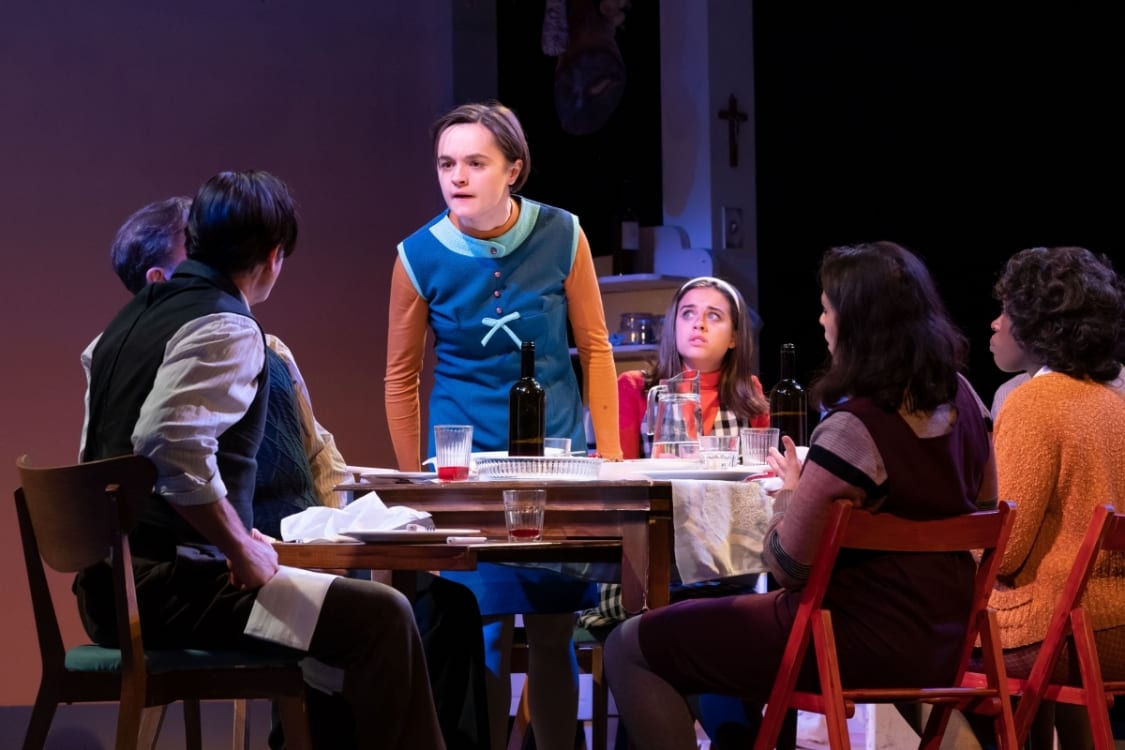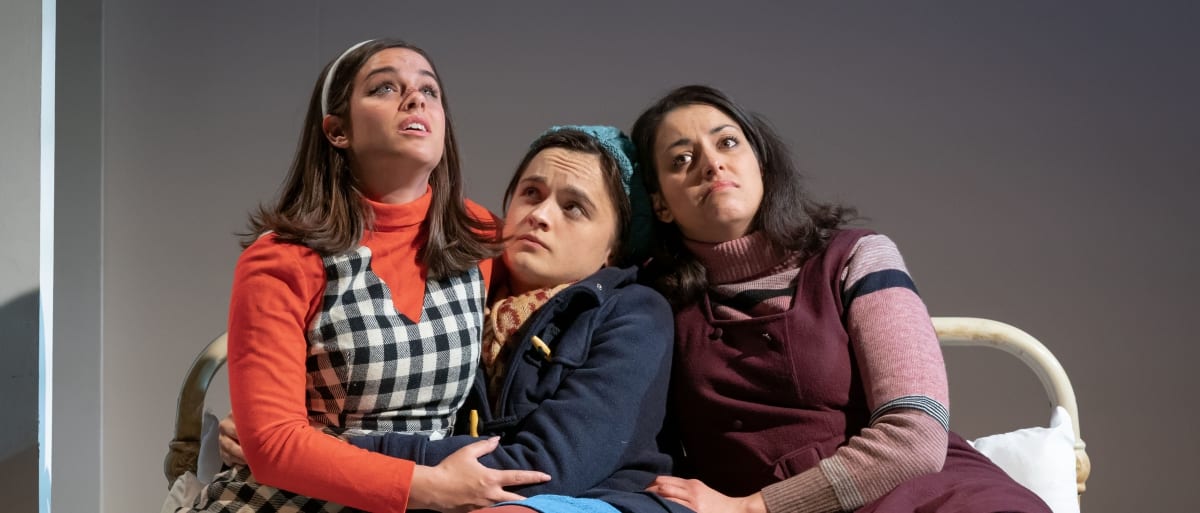I liked Napoli, Brooklyn. I found it interesting, though in the end it just didn’t quite add up for me. Set in Brooklyn in 1960, the story of three daughters of Neapolitan immigrants is strong and clear and there is a great deal in the telling of it that evokes sympathy and understanding. Essentially the three girls are struggling against the problem of an increasingly frustrated and violent father whose Catholicism and culture are extremely harsh, limiting and stringent. Their mother is, quite simply, in love with her husband; but also not entirely unaware of the wounds that are being inflicted on the family. But for much of the play, though she tries to mitigate the situation for the girls when she is alone with them, she also colludes with her violent husband. And she prays a lot! Played with force and enough pain to get some sympathy, Robert Cavanah gives a strong performance as Nic, the father. The three girls are well differentiated by Hannah Bristow as 16-year-old Francesca, the youngest, who is emerging as a lesbian; Georgia May Foote as Vita, smart and mouthy, aged about 20, courageous enough to stop Nic when he is beating up her sister by waving scissors at him, for which she gets sent to a convent as a kind of punishment as if the nuns were running a juvenile detention home; and Mona Goodwin as Tina, the oldest, who had to quit school at 14 to contribute to the household funds. Stephen Hogan is appealing and gentle as the Irish butcher, Albert, who flirts with the mother but cannot declare his love; and Laurie Ogden strongly portrays his delightful daughter and the love interest of Francesca.

The characters and their problems make sense, and initially their difficulties fit well into the 1960 setting; the girls engage one’s sympathy and some of the atmosphere of 1960 is evoked, with Gloria Onitiri giving al touching and smart portrayal of ’s friend Celia who just happens to be black, something that does not it in with Nic’s view of the world any more than does having a daughter who is a lesbian, something about which Nic manages to stay in a sort o denial.
The pivotal character of the play is the mother, Luda, played by Madeleine Worrall. She is the strong centre of everything. I give credit to director Lisa Blair and Designer Frankie Bradshaw for creating an almost cinematic energy and swiftness to the production, and especially the changing scenes. Meghan Kennedy has written a good play with some echoes of Arthur Miller’s A View from the Bridge, it seems to me, and also with a bit of Ibsen’s obsession with self-delusion and necessary dreams that keep one alive thrown in. But in the end I was not completely convinced. I was not bothered by the surprise coup-de-theatre that changes everything part way through the story. I was completely convinced by the characters and their dreams. I felt engaged and sympathetic throughout the play.
But at the very end some of the resolution and the attitudes seemed to me to be anachronistic, more 2019 and “Me Too” than 1960, too much 21st century liberal. However, it is a well-constructed play and very well acted and directed indeed, so if you can, you should give it a try and decide for yourself. It was quite a success in New York. This is its first UK production and the tour will play in London at the Park Theatre from 13 June to 13 July.

